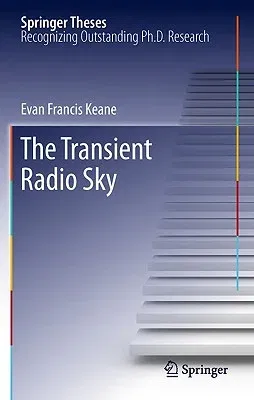Evan Francis Keane
(Author)The Transient Radio SkyHardcover, 16 July 2011

Qty
1
Turbo
Ships in 2 - 3 days
In Stock
Free Delivery
Cash on Delivery
15 Days
Free Returns
Secure Checkout

Part of Series
Springer Theses
Part of Series
Springer Theses: Recognizing Outstanding Ph.D. Research
Print Length
190 pages
Language
English
Publisher
Springer
Date Published
16 Jul 2011
ISBN-10
3642196268
ISBN-13
9783642196263
Description
Product Details
Author:
Book Format:
Hardcover
Country of Origin:
NL
Date Published:
16 July 2011
Dimensions:
23.37 x
15.49 x
1.78 cm
ISBN-10:
3642196268
ISBN-13:
9783642196263
Language:
English
Location:
Berlin, Heidelberg
Pages:
190
Publisher:
Weight:
408.23 gm